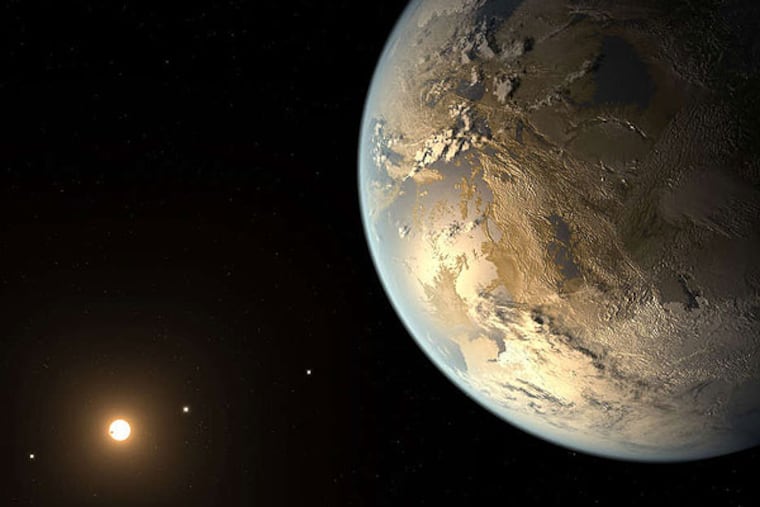Astronomers spot most Earth-like planet yet
LOS ANGELES - Astronomers have discovered what they say is the most Earth-like planet yet detected - a distant, rocky world that's similar in size to our own and exists in the Goldilocks zone where it's not too hot and not too cold for life.

LOS ANGELES - Astronomers have discovered what they say is the most Earth-like planet yet detected - a distant, rocky world that's similar in size to our own and exists in the Goldilocks zone where it's not too hot and not too cold for life.
The find, announced Thursday, excited planet hunters who have been scouring the Milky Way galaxy for years for potentially habitable places outside our solar system.
"This is the best case for a habitable planet yet found. The results are absolutely rock solid," University of California, Berkeley astronomer Geoff Marcy, who had no role in the discovery, said in an e-mail.
The planet was detected by NASA's orbiting Kepler telescope, which studies the heavens for subtle changes in brightness that indicate an orbiting planet is crossing in front of a star.
The newfound object, dubbed Kepler-186f, circles a red dwarf star 500 light-years from Earth in the constellation Cygnus. A light-year is almost six trillion miles.
The planet is about 10 percent larger than Earth and may very well have liquid water - a key ingredient for life - on its surface, scientists said. That is because it resides at the outer edge of the habitable temperature zone around its star.
The find "is special because we already know that a planet of this size and in the habitable zone is capable of supporting life as we know it," lead researcher Elisa Quintana of NASA's Ames Research Center said.
The discovery was detailed in Friday's issue of the journal Science, in a paper whose coauthors included Eric Ford, a professor of astronomy at Pennsylvania State University. It was based on observations that were made before the Kepler telescope was crippled by a mechanical failure last year.